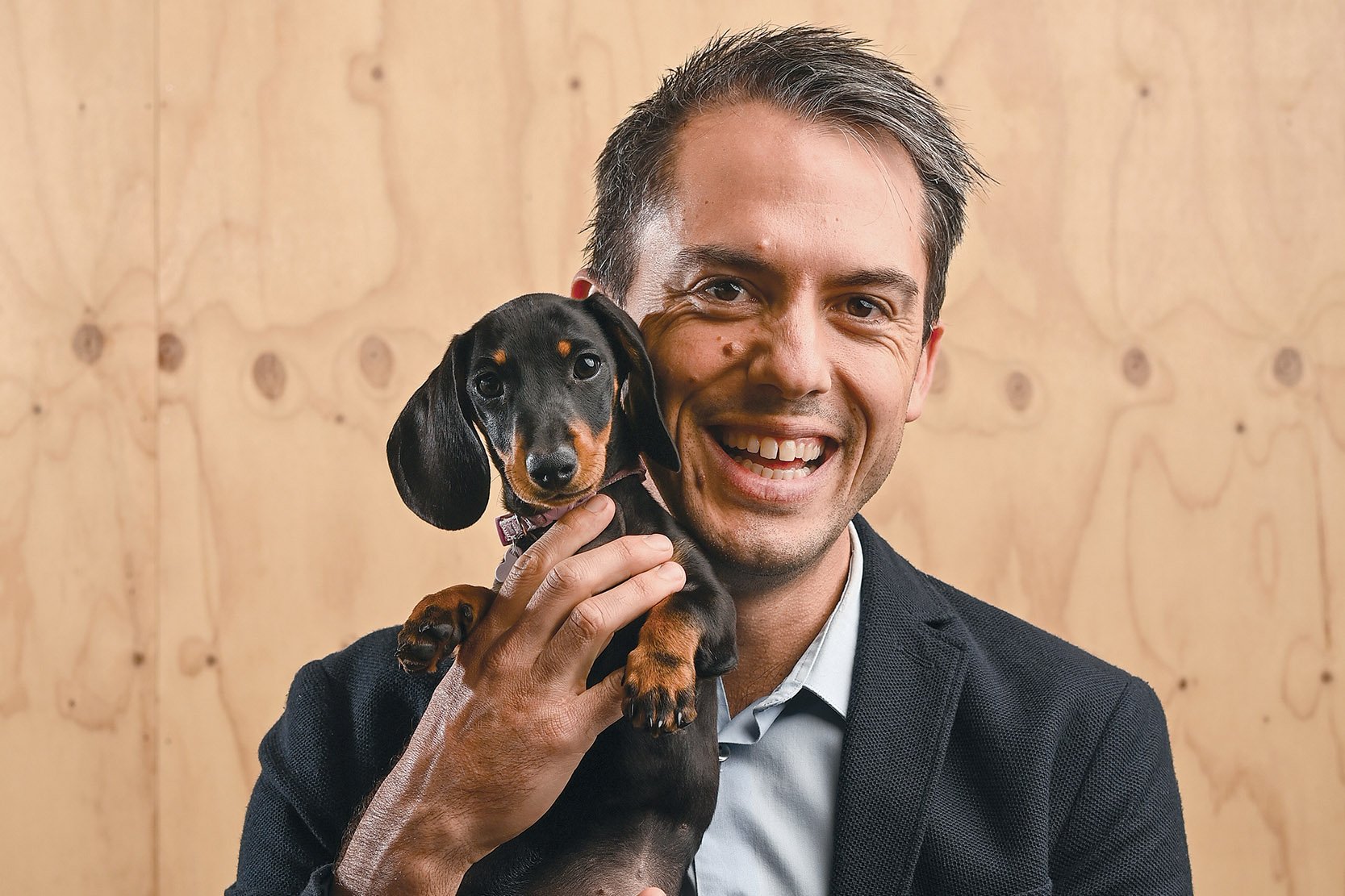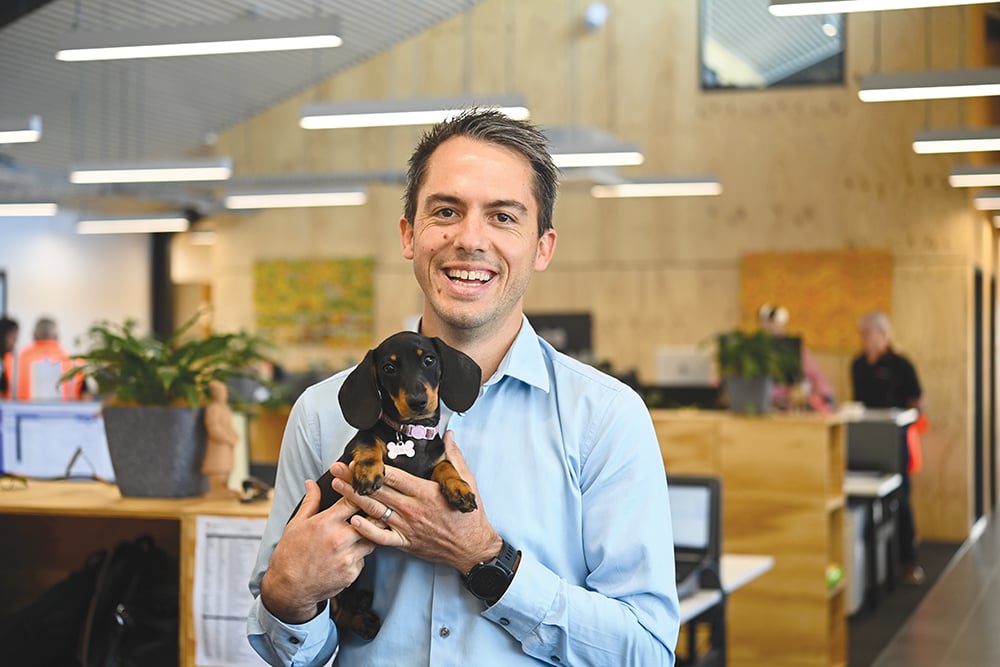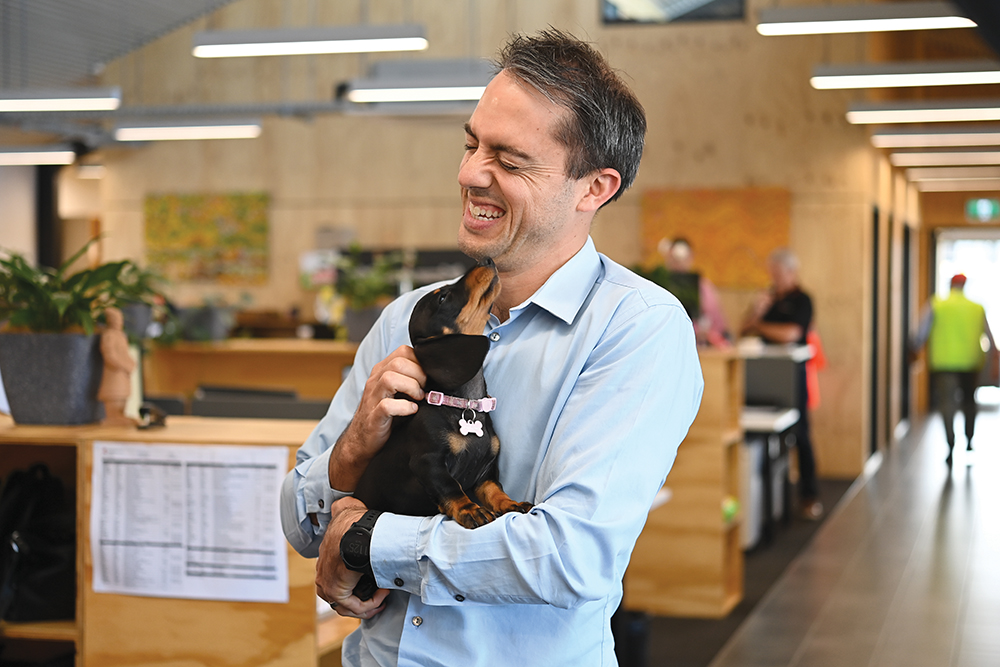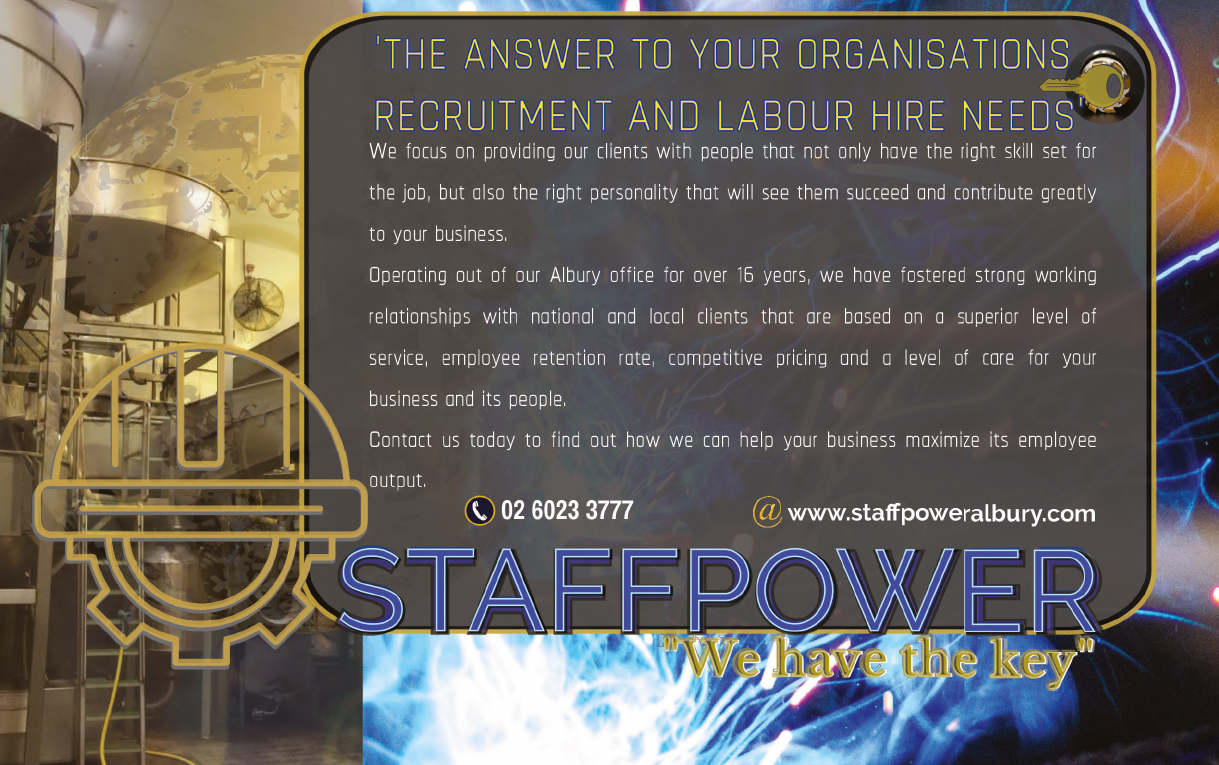One of the great unsung heroes of the COVID-19 pandemic is unquestionably the family pet. People stuck in isolation with their furry or feathered friends found great comfort in the company. Meanwhile, those without animal companions made amends: as 2020 dragged on, puppy prices soared to new heights. “The trend of the pet is no longer a dog that sleeps out in a kennel on the porch,” explains Edward Staughton, Managing Director of pet food manufacturer Staughton Group. “It’s more likely tucked under the doona at the foot of the bed now. Pets are a part of the family, and that’s been taken to the next level during COVID-19 when people are at home all day.”

Inevitably, the pet food market has followed suit. “People went and got dogs to keep them company, and originally there was a surge in panic buying,” says Edward, who thought the boom might lead to a big glut in following months as people stopped to use up the excess product. “But it’s continued, so the likes of Greencross and Petbarn have been publicly speaking about the upticks they’ve seen. It’s been sort of an unseen outcome for us through the course of the pandemic.”

Pets are a part of the family, and that’s been taken to the next level during COVID when you’re home all day.
A dynamic leader within Australia’s manufacturing industry, the Staughton Group is, for Edward, the family business. After years in the finance industry, he took the reins of his father’s company and led it to new heights. Today, it takes a two-pronged approach to the pet goods market: as well as supplying raw ingredients to the global pet food industry, the Group manufactures a line of retail items and finished pet food and treats under either its own brand or private labels for clients.
In March 2020, it was poised to greatly expand its operations in the US, plans that were suspended by the advent of coronavirus. “We were right on the cusp,” Edward reveals. “We had an agreement signed with the national distributor going out to 25 states, the whole campaign was ready to go. But we had to press pause to wait and see what would unfold.” The cloud of uncertainty blanketed the domestic situation as well. “Without the need to stretch our attention overseas, we could concentrate on the changing pace in Australia and keep up with the surge in demand.”
Staughton Group’s location at Howlong, near Albury-Wodonga – on the New South Wales-Victoria border – also provided its share of challenges during the COVID-19 crisis. When Victoria was hit by a second wave of the coronavirus in July 2020, Staughton’s interstate workforce was disrupted. “Being right on the border, half our workforce is on one side and the other half is on the other,” Edward says. “It created a lot of uncertainty and plenty of delays, but we tried to make sure we kept communications open and updated staff on all the changes we could see. We made them feel safe that there was a plan and we were working through that strategy.”
So far, Staughton Group’s plan has been effective: the company is yet to record a case of COVID-19, according to Edward. “We’ve continued to operate as an essential service, and we’ve seen continued demand. I was really proud of the way our senior team came together to make a lot of changes very quickly in the midst of a lot of unknowns.”
The ingredients arm of the business experienced the lion’s share of disruptions due to the difficulties faced by worldwide supply chains in the wake of the outbreak, but Australia’s relative remoteness from the situation allowed Staughton Group to offer aid to its partners. “A lot of meat plants were ground zero for COVID outbreaks, particularly in the US, so some of our customers were looking to diversify their supply chains,” he says. “We’ve worked with them and our local suppliers to see if we could fill some of those gaps and provide some continuity.”
However, when some of Victoria’s meat processing businesses became COVID-19 hotspots, plants around the state were placed on restricted production. “It was a difficult time,” Edward says. “We worked closely with our partners in that sector, and it really made me appreciate the value of those relationships.
“There was quite a selfless process from these companies to share learnings on what has worked and what hasn’t during such an extraordinary situation, and it gave me a strong perspective of the need to continue that process beyond the wartime mentality and make sure it’s our approach to those relationships ongoing.”
It’s a pretty exciting time, actually, because I think there are huge opportunities for innovation.

The crisis provided the company with an opportunity to forge new relationships in another direction. Many Australian manufacturers restructured their operations to assist in the production of personal protective equipment so vital to the COVID-19 response; Staughton was one of them.
“We didn’t specifically rejig our processes and the like, but we worked with local companies within that space,” Edward explains. “The local distillery pivoted to producing sanitiser, and we were able to supply them with 1,000-litre IBC bins to hold the product.” Staughton also donated ingredients required for the production of sanitiser.
As the country continues to move into a post-pandemic state, Staughton Group is settling into a ‘new normal’ groove. “It’s a pretty exciting time, actually, because I think there are huge opportunities for innovation,” Edward says. “It’s about portraying pet nutrition in novel and innovative ways, which is as much about increasing the bond between people and their pets as it is about the health of the animal. Ultimately, the health of that relationship actually goes a long way to the pet’s health.”
Additionally, the Staughton team is growing despite the year’s challenges, something Edward believes is a testament to the Group’s dedication and core values. “It’s been an interesting exercise to grow a team during the 2020 environment,” he says. “But it’s been rewarding to build a team that’s capable of diversifying, of owning their areas of responsibility and working cohesively so we can really succeed as a group.”
Proudly supported by:



